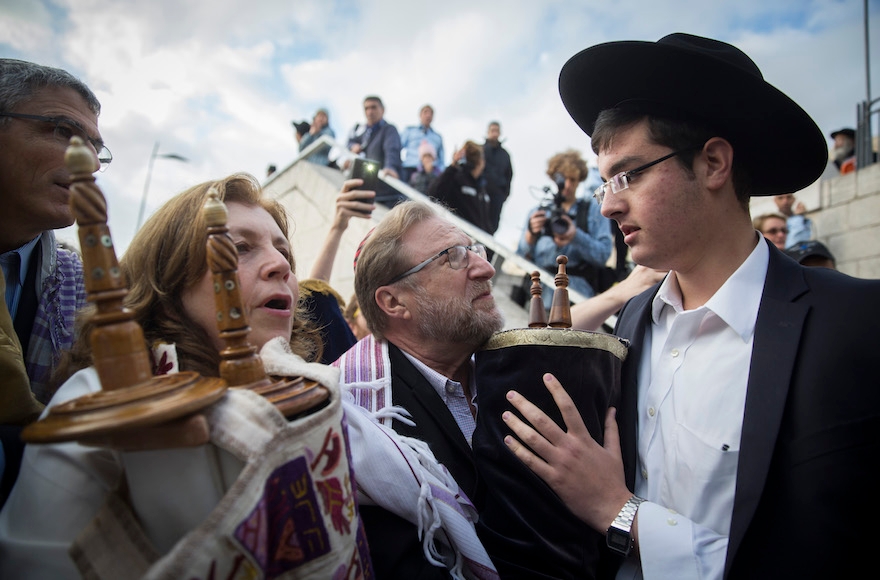JERUSALEM (JTA) — For Israeli Jewish voters, September’s election is about the economy — social issues, security and foreign affairs, too.
Meanwhile, while a majority of Israeli Jews support changes to the religious status quo in their nation, issues of religion and state appear to become irrelevant when they enter the voting booth, according to a new online survey released by the Israeli Democracy Institute.
Among the 760 respondents to the poll, economic-social issues and foreign affairs-security were the determining factors for 36.7 percent and 36.2 percent. Among the secular, 45.5 percent said that they saw economic and social issues as the “key consideration when deciding which party to vote for.”
On religion and state, only 15.5 percent regarded those issues as important enough to determine their political choices even though 60 percent of the respondents supported the introduction of public transportation on Shabbat and 59.5 percent were in favor of introducing civil marriage.
While religion was paramount for 67.5 percent among the haredi, or ultra-Orthodox, spectrum, 53 percent of the national religious, 44 percent of the traditional religious and 47 percent of the traditional nonreligious consider issues of security and foreign affairs as most important, IDI found.
More than two-thirds of the respondents, 68.5 percent, said they supported drafting haredi Orthodox Jews. The number rose to 79 percent among the secular and nonreligious Israelis. The issue was the sticking point in Prime Minister Benjamin Netanyahu’s bid to form a government following April’s election.
“The survey once again proves that the majority in Israel is seeking to change existing arrangements,” said Shuki Friedman, director of the IDI’s Center for Religion Nation and State.
JTA has documented Jewish history in real-time for over a century. Keep our journalism strong by joining us in supporting independent, award-winning reporting.






